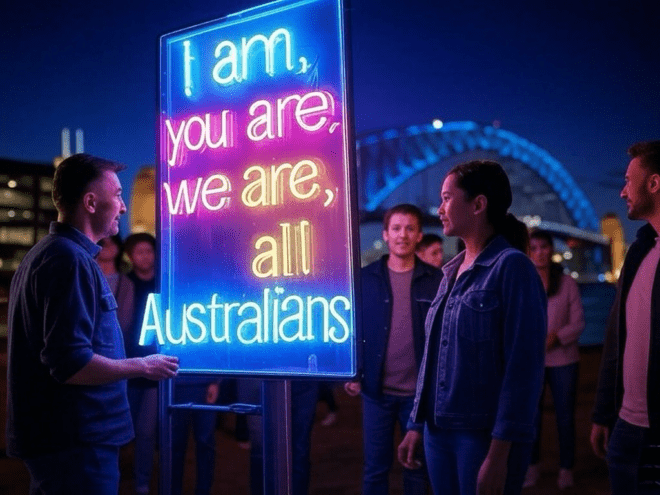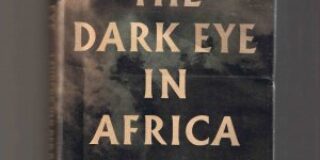Introduction

History, once progressed, is linear and irreversible. For nations like Australia, the transition to a multiracial, multiethnic, and multicultural society is not a temporary phase but a foundational reality that shapes its future. This demographic evolution demands a style of governance that priorities inclusivity and social cohesion over division and exclusion. In a multicultural country, political leaders must govern for all citizens, transcending the temptation to exploit ethnic or cultural differences for electoral gain. Yet, Australian Opposition Leader Peter Dutton exemplifies a contrasting approach, employing divisive rhetoric and policies that arguably undermine long-term social harmony for short-term political advantage. This post examines Dutton’s leadership style in the context of Australia’s multicultural identity, particularly focusing on his handling of complex issues like the war in Gaza, which has strained relations between Jewish and Middle Eastern Muslim communities. It argues that Dutton’s failure to address these challenges holistically renders him unsuitable for the role of Prime Minister in a diverse nation.
The Multicultural Reality of Australia
Australia’s identity as a multicultural nation is both a historical fact and an ongoing process. The 2021 Australian Census revealed that nearly 30% of the population was born overseas, with over 300 ancestries represented, ranging from Indigenous Australians to recent arrivals from Asia, Africa, and the Middle East. This diversity, accelerated by post-World War II immigration policies and the dismantling of the White Australia Policy in the 1970s, is irreversible. As asserted, once a country becomes multicultural, it cannot revert to a homogenous past – nor should it aspire to. This reality imposes a unique responsibility on political leaders: to govern in a way that reflects the interests and identities of all citizens, rather than singling out specific groups to appeal to a perceived majority.
The benefits of this diversity are well-documented – economic growth, cultural richness, and global connectivity – but so are the challenges. Social cohesion, the glue that binds a multicultural society, requires trust, mutual respect, and a shared sense of belonging. Policies or rhetoric that fracture this cohesion by targeting particular ethnic or religious groups risk long-term instability, prioritising communities and eroding the collective goodwill that sustains Australia’s social fabric.
Peter Dutton: Division as a Political Weapon
Peter Dutton, as Leader of the Opposition since May 2022, has built a political career marked by a willingness to exploit division. His tenure as Home Affairs Minister (2017–2021) and his current leadership role offer numerous examples of this approach. In 2018, Dutton suggested that Lebanese-Muslim immigration in the 1970s was a “mistake,” linking it to crime rates in Melbourne – a statement widely criticised for stigmatising an entire community. Similarly, his amplification of “African gang” violence in Victoria during the same period was seen as a dog-whistle to suburban voters, despite police data showing no disproportionate crime wave tied to South Sudanese Australians. More recently, in 2023, Dutton called for a blanket ban on Palestinian refugees fleeing Gaza, citing security concerns, even as ASIO Director-General Mike Burgess clarified that rhetorical support for Palestine did not inherently equate to extremism.
These instances reflect a pattern: Dutton leverages fear and difference to consolidate support among a specific demographic – often older, Anglo-Australian voters – while disregarding the broader implications for social unity. In a multicultural society, such tactics are not merely ineffective; they are destructive. By singling out groups for political gain, Dutton risks alienating entire communities, fostering resentment, and deepening societal fractures. This approach stands in stark contrast to the inclusive leadership required to navigate Australia’s diversity, particularly when global conflicts like the war in Gaza amplify local tensions.
The Gaza Conflict and Domestic Polarisation
The ongoing war in Gaza, escalating since October 2023, has reverberated globally, including in Australia. With a Jewish population of approximately 100,000 and a Muslim population exceeding 800,000 (many of Middle Eastern descent), Australia has felt the conflict’s domestic impact acutely. Protests, hate incidents, and debates over freedom of speech have intensified, placing the Jewish and Muslim communities at potential loggerheads. Antisemitic incidents rose by 62% in 2023–2024, according to the Executive Council of Australian Jewry, while the Islamophobia Register reported a surge in anti-Muslim abuse tied to pro-Palestinian activism. This polarisation presents a critical test for Australian leadership: how to manage a global crisis’s local fallout without exacerbating division.
Dutton’s response has been characteristically divisive.
Dutton’s unequivocal support for Israel, coupled with his controversial calls to deport pro-Palestinian activists and his outright rejection of Gazan refugees, presents a stark framing of the conflict as a zero-sum game. This approach not only simplifies a complex issue but also risks alienating various segments of the Australian populace.
In August 2023, Dutton articulated a viewpoint that admitting Palestinians into Australia would pose a “national security risk”. This assertion, made despite the existence of comprehensive security vetting processes and the absence of evidence supporting widespread radicalisation among arrivals, has raised significant concerns. By prioritising national security rhetoric over humanitarian considerations, Dutton’s stance effectively marginalises Muslim Australians, who may feel unjustly targeted by such sweeping generalisations. Furthermore, this rhetoric may inadvertently stoke tensions within the Jewish community, as individuals may feel compelled to adopt a hardline position that discourages open dialogue and stifles legitimate debate.
The accusations from pro-Palestinian advocates – that critics of Israel are being silenced under the pretext of combating antisemitism – underscore the precarious nature of Dutton’s rhetoric. By conflating dissent with disloyalty, Dutton risks exacerbating existing divides, fostering an environment where constructive criticism is met with hostility rather than engagement. In a society that prides itself on multiculturalism and inclusivity, such an approach seems at odds with the principles of dialogue and understanding that are essential for harmonious coexistence.
Leadership in a multicultural society necessitates a delicate balance. A leader must navigate the complexities of differing perspectives, ensuring that no community feels targeted or marginalised. Dutton’s approach, however, appears to prioritise a narrow political base over the broader imperative for dialogue and reconciliation. By aligning decisively with one perspective, he undermines the government’s role as a neutral arbiter in this multifaceted issue. This failure to bridge divides – whether between Jewish and Muslim Australians or between those advocating for national security and those championing free speech – reveals a significant limitation in his capacity as a unifying figure.
The Cost of Division: Long-Term Social Cohesion
Australia, often hailed as a global leader in the integration of diversity, provides a compelling case study in this regard. The Scanlon Foundation’s Mapping Social Cohesion survey reveals critical insights into the dynamics of trust in institutions and intergroup relations within our society. While the nation has made significant strides in fostering inclusivity, recent political rhetoric and tactics threaten to undermine these achievements, particularly in the context of divisive leadership.
The current political landscape, exemplified by the tactics employed by Opposition Leader Peter Dutton, illustrates the precarious balance between rallying a conservative base and maintaining social cohesion. Dutton’s approach, while potentially effective in mobilising a specific demographic, comes at a steep cost. It erodes the sense of belonging among minority groups, fuels mistrust, and invites a cycle of reciprocal polarisation. For instance, in the context of the ongoing conflict in Gaza, the rhetoric utilised by Dutton risks deepening the alienation of Muslim Australians, who already face heightened rates of discrimination. Simultaneously, it places undue pressure on Jewish Australians, compelling them to defend a policy stance that may not align with their personal beliefs or values. This environment of division not only hampers social cohesion but also threatens the very fabric of our multicultural society.
In stark contrast, we can look to the leadership styles of figures such as former Prime Minister Paul Keating and current Prime Minister Anthony Albanese. Keating’s tenure was marked by a robust advocacy for multiculturalism, framing it as a national strength rather than a challenge to be managed. His vision promoted an inclusive narrative that celebrated diversity as a cornerstone of Australian identity. Likewise, Prime Minister Albanese’s approach demonstrates a nuanced understanding of the complexities inherent in governance. By striving to balance support for Israel with humanitarian aid to Gaza, he exemplifies the possibility of governing for all, even amid multifaceted and contentious issues.
These contrasting leadership styles underscore a vital lesson: the importance of fostering social cohesion in a multicultural democracy cannot be overstated. Dutton’s short-termism, characterised by a focus on immediate political capital, ultimately sacrifices long-term stability and harmony for fleeting gains. This trade-off is detrimental not only to minority communities but to society as a whole, which relies on its diversity for economic and cultural vitality.
Counterarguments: Security and Pragmatism
Dutton’s defenders might argue that his focus on security and order reflects legitimate concerns in an uncertain world. Australia faces real challenges – global terrorism, regional instability, and the integration of new arrivals – that demand a firm hand. His stance on Gaza, for instance, could be framed as a pragmatic response to intelligence concerns, protecting national interests in a way that resonates with voters anxious about change. Yet, this defense falters under scrutiny. Security agencies have consistently downplayed the risks Dutton amplifies, and his exclusionary policies often lack evidence-based justification. Moreover, prioritising security over cohesion risks creating the very instability he claims to prevent, as marginalised communities withdraw from civic life or turn to radical alternatives.
Conclusion
Australia’s multicultural identity is not merely an aspect of our society; it is an irreversible reality that demands a form of leadership capable of uniting rather than dividing. As we navigate the complexities of our globalised world, the need for inclusive governance becomes ever more pressing. Unfortunately, the track record of Peter Dutton raises significant concerns about his ability to meet these essential leadership standards.
Dutton’s history is marked by divisive rhetoric and selective targeting of ethnic groups, which have proven to be detrimental to the social fabric of our nation. His hardline stance on various issues, particularly those surrounding the Gaza conflict, exemplifies a failure to grasp the nuances of a multicultural society. While such approaches may yield short-term political gains, they ultimately undermine the long-term social cohesion that is vital for a diverse nation like Australia. A leader must possess the capacity to navigate complex domestic and international challenges with a sense of empathy and inclusivity, qualities that seem to be lacking in Dutton’s political repertoire.
In a country where history has progressed beyond the confines of homogeneity, it is imperative that our Prime Minister governs for all Australians, irrespective of their background. The challenges we face today – ranging from climate change to economic inequality – require a unifying vision that embraces our differences rather than exploiting them. Dutton’s inability to rise above polarisation, as evidenced by both his past and present actions, renders him unsuitable for the role of a leader in such a multifaceted society.
Australia’s future hinges on the ability of our leaders to build bridges rather than walls. We must cultivate an environment where all voices are heard and valued, fostering a sense of belonging among all citizens. Dutton, thus far, has demonstrated a propensity for the latter, creating divisions that could have lasting repercussions on our social landscape.
As we move forward, it is crucial that we hold our leaders accountable for their actions and rhetoric. The time has come for a new generation of leadership that recognises the strength found in diversity and champions a narrative of inclusivity. Australia deserves leaders who aspire to unite us in our shared values and common goals, rather than those who perpetuate division and discord.


